Which Direction Home?
How Different Sources of Capital Direct Our Personal Agency
Agency is a precious resource, one continually at threat from wider forces of authoritarian ideologies and capital, as stated in several short films at Encounters Film Festival.
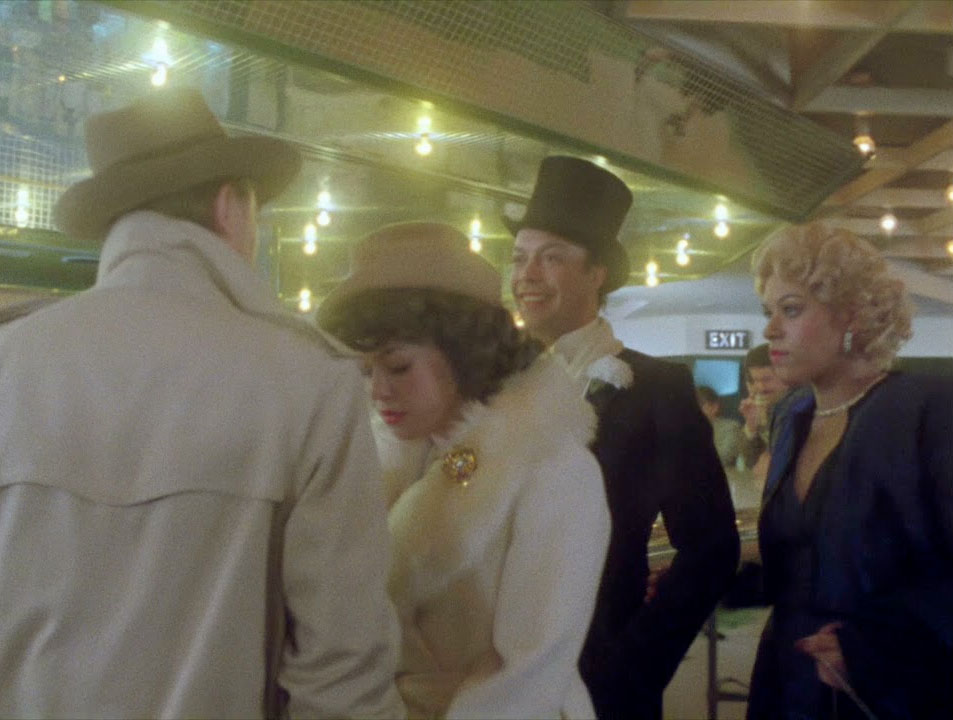
To make a living and to exist freely was on the minds of many filmmakers at this year’s Encounters Film Festival. Perhaps a widespread subconscious response to authoritarian state abuses, capitalism run amok, and the general impossibility of building a coherent body of work as an artist. A sense of individual agency was particularly acute amongst several shorts that utilised specifically 21st-century filmmaking methods, such as smartphone footage, YouTube videos, and videographic criticism. In turn, the films open up discussions behind the ideological power structures and sources of capital, financial or otherwise, that dominate our lives and direct our sense of personal agency.
Walk-On Parts
The overlap between agency and capital is clear in the unassuming labour depicted in Jill, Uncredited. The UK Award winner at this year’s Encounters, directed by Anthony Ing, is composed entirely of snippets of Jill Goldston’s four-decade-plus acting career. If you’ve never heard of Goldston, that’s understandable: she worked almost exclusively as a background extra across what feels like the entire gamut of British film and TV from the 60s until her retirement in 2009. Each appearance amounts to no more than a few seconds of screen time, rarely visible for more than a blink of an eye. Ing often pauses and cuts to her face, making sure we don’t miss her in a split second. A closing text tells us that the impressive list of films used in Jill, Uncredited represents just 5% of Goldston’s career output. This is then a dual representation of labour, that of the unassertive background actor who, over the years, builds up an impressive CV by stealth, culminating second by second into a vocation that’s greater than the sum of its parts and of the roles and ‘jobs’ she performs in the background.
Most frequently, we see her at work as a teacher, nurse, maid, caregiver: all roles traditionally associated with femininity. Though the film is at first glance a tribute to Goldston, it eventually develops into a work of film-as-film-criticism, tracking the limits of roles given to female supporting characters over multiple decades in the British film and TV industries. Never does Goldston linger in the background as a doctor or headmaster. Instead, she is often seen being given instructions, putting a caring arm around a patient, clearing the table, or simply passing by. The depiction of labour capital in Goldston’s career is hemmed in by the feminine and, by extension, the invisible, mirroring much of how traditional women’s work has been devalued and ignored throughout history.
During her arrival as a character not at work, her agency functions differently. In her youth in the ‘60s, we see her frequently as a dancefloor partner or a young woman on a night out. It’s in these early appearances she seems to exhibit more freedom and liberation, switching partners on the dancefloor or flirting: the hard-won rights of the immediate postwar era visible in the greater degree of sexual liberation that came with it. As she ages, she appears more often in period dramas, often attached already to a male. Even with the fight for women’s rights through the latter half of the twentieth century, it appears her roles became more constrictive. What such an implication suggests is that the process of liberation and personal agency for women does not exist in a straight line of cumulative, beneficial progress.
Perhaps nowhere is the crooked line of progress more evident than in the presently ongoing SAG-AFTRA strikes, in which one of the big issues for actors is that studios want to scan the faces of background actors for a one-off payment and then use them in perpetuity—with background extras earning (in the States) offered as little as $200 a day for inconsistent, irregular work. The studio suggestion was also insulting: a one-off $200 payment for a full body scan, no residuals. As pointed out by programmer Jonathan Ali, such a decision would effectively make the career of one such as Goldston unviable, vandalising the financial agency and livelihoods of the many Goldstons working today. For actors, it’s much about agency in their choice of work: in interviews since the film premiered, Goldston has spoken of her unwillingness to step into speaking roles, being perfectly happy as an extra. It’s a markedly different approach to life than the standard one we hear from actors, who discuss their determination for success and stardom and their high-minded artistic ideals.
There is nothing wrong in Goldston’s choices, which are as dignified and rewarding as she chooses to make them: the silent labour of the extra is just as valuable as the showy monologues audiences pay to see. Ing’s exploration of this near-hidden career functions as its own work of film archeology, memorialising both Goldston’s labour and that of her characters over the decades. It is a work of archival discovery that, whilst not impossible in a pre-Internet era, is certainly aided by the modern Internet’s capacity for research rabbit holes. If Jill, Uncredited has an air of dignity about it, it is an outlier in this year’s programme—other films fixated much more strongly on the lack of agency.
The Choice is Yours: Get Right With God or Burn in Hell
Internet rabbit holes form the inspiration for the eco-feminist Neozoon Collective’s Lake of Fire, which explores the lack of agency inherent in modern Christian Evangelicalism and ecological destruction. There is little dignity or choice in Lake of Fire, the film all the more abrasive and provocative for it. Here, it is the natural capital of our earth that becomes the subject of the documentary, a series of sequences depicting logging, open-air mining, and the exploitation of the soil. Superimposed on top, in obtrusive and DIY style, are clips from various Evangelical Christian YouTube channels, all hailing the end times, the two crashing together in a cacophony of environmental destruction and hellfire preaching.
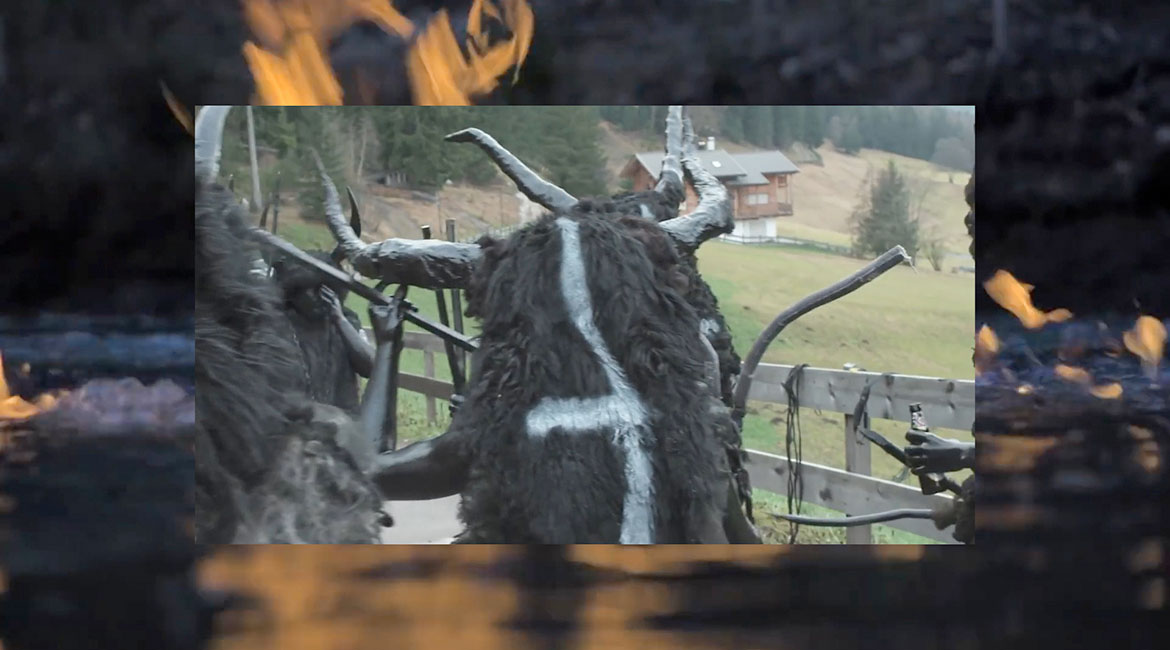
Lake of Fire (Neozoon, 2022)
As a sociological construct in a historical context, this aggregation of climate catastrophe and a specifically American kind of Evangelicalism seems entirely logical. Evangelicals, more so than other Christian denominations, are obsessed with the idea of The Rapture, of the Second Coming of Christ, and of The Antichrist. To that end, for example, there is a great number who use that belief to justify their unending support of Israel11 This text was commissioned and written before the situation in Gaza evolved into its scale today, November 3rd, 2023. ↩︎. Specifically, the ultra-nationalistic (Zionist) colonial conceptualisation of Israel has become by far and away the most prominent version of the state today, principally because it is so prophesied in the Book of Revolutions (and in spite of the noted anti-Semitism of right-wing Evangelicals). Disruption and conflict in the Middle East are a deliberate aim of Evangelical belief and theology, arising out of the sect’s focus on The Rapture—speed up the timeline, so it says, and the Holy will get to Heaven all the sooner.
In continually aligning the destruction of the natural environment with the fire and brimstone proclamations of recorded sermons and worked-up bedroom preachers, Lake of Fire accurately describes why such a theology sees little to worry about with the forthcoming climate catastrophe. It’s just another day on the road to the apocalypse, folks!
This thought process robs its followers (and those unwillingly caught in its culturally powerful riptide) of agency. The only important decision one needs to make as an Evangelical is to accept Jesus (and the YouTube preachers continually beseech us to “get right with the Lord”). All other options are secondary and meaningless as far as entry into Heaven is concerned. Boiled down to its essentials, Evangelicalism is far more nihilistic than your standard morose first-year undergrad with a rudimentary grasp of Nietzsche that’s more commonly associated with philosophy.
For Neozoon Collective, environmental destruction and fears of the Rapture are part of the same ideological wavelength, raising all sorts of implications about how modern capitalism and fundamentalist Christianity communicate with each other. Both function on a death drive towards oblivion at all costs and are predicated on the loss of agency. If the former relies on our inability to reduce rampant resource consumption adequately, the latter feeds off our existential fears about the afterlife.
Ironically, these specifically contemporary, Internet-era aesthetics, created by the small army of YouTube Evangelicals, many of whom stream from home using smartphones and webcams, hint at how their creators attempt to reclaim agency. Just as they speak of the lack of freedom we’ll all face up against God, they reach out into the void of the Internet in the hope of building some sense of community. In integrating this footage into the film, Neozoon reveals what is a mostly organic construction: these Evangelical groups are discussing their faith and theology in ways that, to them at least, are sincere and authentic. In doing so, they form a disparate, though interconnected bond. Regardless of ideology, their existence as a community with its own source of legitimacy—constructed by and amongst its adherents—is its own source of political and social power, which in turn creates a sense of agency.
This source of power, legitimacy, and agency emerges in an online community that is constituted of images that have only existed for less than twenty years. As a result, the answer to Evangelist nihilism is at least partly detectable in its very aesthetics, that of a digitalised democracy and online community.
We Are Watching You
Narges Kalhor’s Sensitive Content very frankly confronts that sense of online community and power legitimacy. The film is composed almost entirely of crowd-shot footage, disseminated on social media, of the mass protests in Iran in 2022 in the wake of the death of Mahsa Amini at the hands of the Guidance Police for “improper wearing of her hijab.” Amini’s death prompted mass civil unrest from a population tired of the ultra-conservatism and theocratic control of the ruling classes; the state responded, as all threatened states do, with brutality and violence at the cost of hundreds of lives. Much of the crowd-shot footage in Sensitive Content specifically depicts actions of police brutality captured and shared by protestors.
The footage is distressing, but Kalhor doesn’t approach the material with a desire to simply replicate images of misery and brutality. The building block of Kalhor’s film is perhaps the most ubiquitous tool of democracy we have right now, one that has been particularly important in Iran—the smartphone. A world of perpetual surveillance, the film suggests, cuts both ways, allowing the people to capture abuses of power live, as they happen. The smartphone’s capacity to disseminate these images after the fact acts as an imperfect deterrent (with the caveat that nearly all digital activity can be tracked, blocked, or regulated), presenting a reclamation of agency after its initial loss. Sensitive Content asks the question as to who really gets to wield political and democratic power, utilising a distinctly modern texture—that of the smartphone’s grainy, digitally distorted visuals—to construct an image of what bottom-up political activity looks like.
The films mentioned thus far have all used the vast informational mass of the modern world to produce works in which details are thrown at you with terrifying speed, often barely comprehensible, reflecting the chaotic world in which we live and where agency can quickly be lost. But one work takes the entirely opposite direction, showing how the loss of agency can be totally all-encompassing.
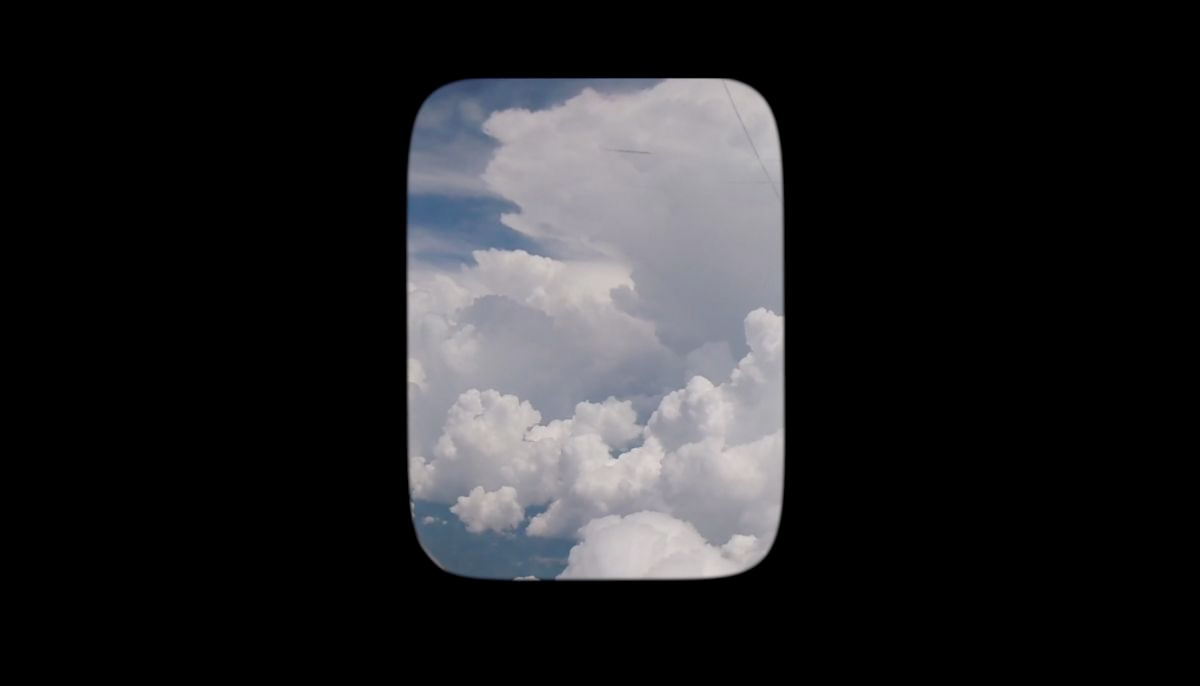
The Stopover (Collectif Faire-Part, 2022)
A Short Transfer
The Stopover, by Belgian-Congolese collective Collectif Faire-Part (split between Anna Reijniers and Rob Jacobs in Belgium and Paul Shemisi and Nizar Saleh in the Democratic Republic of Congo), tells a simple, albeit gripping story. Narrated by Shemisi and Saleh, the film has the two tell us of their nightmarish journey to Europe when they were due to fly from Kinshasa to Germany via Luanda, Angola, where they were accused of travelling with fake passports and imprisoned. Their escape was down to Reijnders, who was then able to contact various embassies and get them out. The only images we are given are that of the narrow rectangular view of an airplane window. Everything outside of this frame is blacked out.
Shemisi and Saleh’s escape is partly only possible because of their access to Reijniers, Jacobs, and the wider film festival ecosystem in Europe. The latter does so much to invest in and promote cultural output and yet so frequently also excludes non-Europeans from inclusion in this production of cultural capital, robbing them of creative and personal agency in the process. The Stopover, then, could be read as a doubling-back of its point-of-view, recognising that this cultural capital, whilst aiding Shemisi and Saleh, leaves behind its own trail of injustice—even though it’s never explicitly stated so out loud. We never find out what happens to the other figures imprisoned with the two. The narrators do their best to remember their names and plights, hoping they reach empathetic eyes in the right place. The film unfolds like an episode of sleep paralysis, where the mind is active and alert, but the body is inert; there is no obvious escape until the ordeal is over.
The view of this journey is hard to make out, beyond glimpses of blurry landscapes in the far distance, building a claustrophobic atmosphere. It is a stripped-back and spare approach compared to the other films under discussion, but the spareness serves to highlight the lack of power and agency afforded to Shemisi and Saleh. If the frame that exists outside of the airplane window is all negative space, then The Stopover aligns this negation with the oppressive and all-encompassing crush of arbitrary power, an action that inevitably occurs with the loss of agency on those whom it is enacted against. It’s not pure chance that Shemisi and Saleh were the ones accused of forgery, but it is a chance that their agency in this situation is because they happened to know the right person, an agency not afforded to their fellow detainees. Victim or survivor, there is no escape from the clutches of power and capital.
Agency, then, is a precious resource, one continually at threat from wider forces of authoritarian ideologies and capital. Where Jill, Uncredited filters these ideas through 20th-century women’s labour, and both ‘Sensitive Content’ and ‘Lake of Fire’ approach the lack of agency within modern power structures with a recognition that the constant barrage of information we face today is part of the struggle, ‘The Stopover’’s spareness suggests to us what the world looks like when that dominant power is successful, even if only temporarily in this instance. It’s a reminder of just how vital human agency is. Cut off from agency, whether by state power, capital, or fundamentalism, there is nothing in the frame: just an endless abyss in which action is impossible.
Mentioned Films
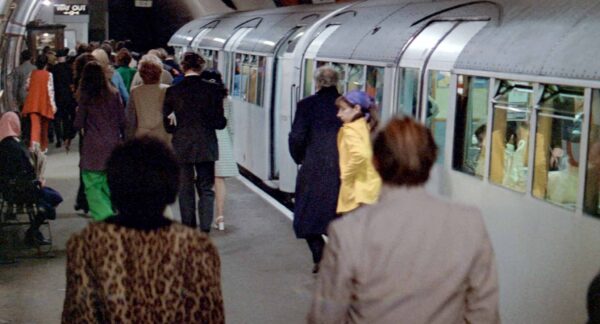
Jill, Uncredited
by Anthony Ing, United Kingdom, Canada, 2022, 18’
At first, you do not even notice her; she is one of many. But, little by little, you begin to become aware of her and her special presence. As a background artist, Jill Goldston has worked on countless films. This collage of fifty years of cinema and television history is a tribute to her and to all the figures in the background, without whom those in the foreground would be unable to take centre stage.
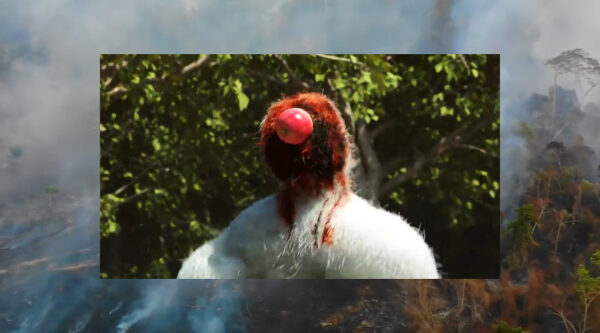
Lake of Fire
by
Neozoon,
Germany,
2022,
11’
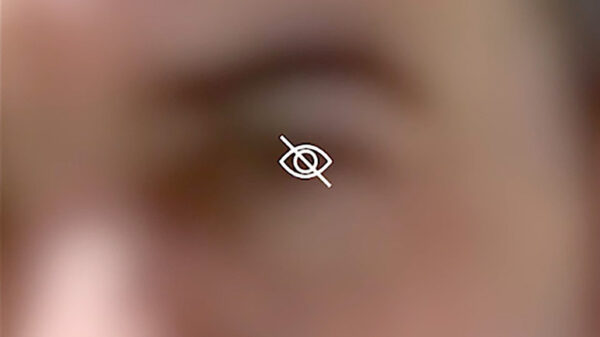
Sensitive Content
by Narges Kalhor, Iran, Germany, 2023, 8’
Iran, 16 September 2022. Mahsa Amini dies after being beaten by the morality police. Demonstrations follow, bringing together thousands of women severely repressed by the regime. Narges Kahlor explores the videos of these revolts published on social media, paying tribute to these defenders of the people armed with telephones.
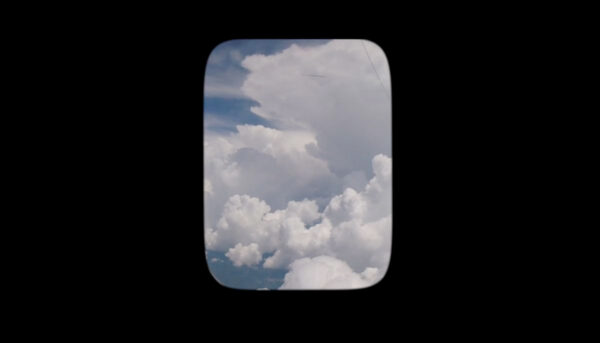
The Stopover
by Collectif Faire-Part, Belgium, 2022, 14’
In 2019, filmmakers Paul Shemisi and Nizar Saleh traveled from Kinshasa to Frankfurt for a screening of their new film. During a stopover in Angola, they were stopped at the airport because the airline didn’t trust their papers. When Paul and Nizar thought they would be led to a hotel, they found themselves in an illegal detention center. The filmmaker’s testimony provides an insight into the impossibility for Congolese artists to travel trouble-free and safely.

